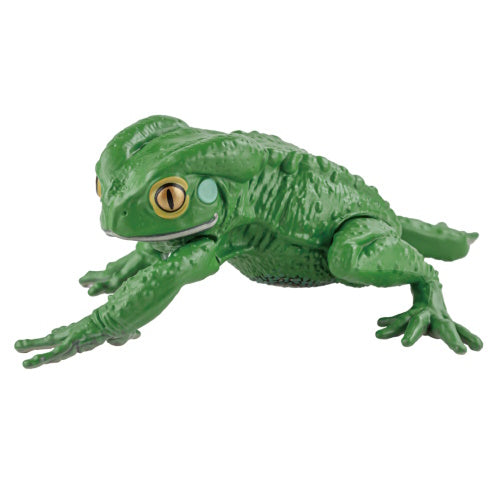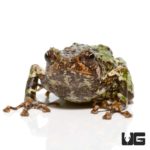Rain Frog for Sale: Unlock the Charm of Nature with Your Own Amphibian Companion!
Rain Frog for Sale: Unlock the Charm of Nature with Your Own Amphibian Companion!
Blog Article
Common Health And Wellness Issues in Reptiles: Symptoms and Solutions
In the complex world of reptile treatment, understanding the common health problems that might affect these distinct animals is critical in guaranteeing their wellness. Whether it's grappling with parasitic problems, browsing dehydration problems, or addressing skin ailments that materialize in subtle ways, being attuned to the symptoms and outfitted with the expertise of effective solutions is vital for any kind of reptile proprietor.
Breathing Infections
Respiratory infections in reptiles can considerably influence their total wellness and call for timely interest from seasoned veterinarians. These infections are typically brought on by fungis, viruses, or microorganisms and can show up via symptoms such as hissing, nasal discharge, open-mouth breathing, and lethargy. In reptiles, respiratory system infections can be specifically challenging to diagnose and treat as a result of their one-of-a-kind composition and physiology. Veterinarians usually rely upon a combination of physical exams, analysis imaging, and lab tests to properly recognize the underlying root cause of the infection.
Treatment for respiratory infections in reptiles generally includes a combination of supportive care, such as keeping appropriate moisture levels and temperature gradients in the room, as well as targeted medicine to deal with the specific microorganism accountable for the infection. It is essential for reptile owners to monitor their animals very closely for any type of indicators of respiratory distress and seek vet care at the earliest indicator of an issue. With prompt intervention and ideal treatment, many reptiles can recoup completely from respiratory infections and return to normal tasks.

Metabolic Bone Illness
What variables add to the advancement of Metabolic Bone Condition in reptiles?
Metabolic Bone Condition (MBD) in reptiles is largely created by an absence of proper calcium, phosphorus, and vitamin D3 levels in their diet plan. Furthermore, inadequate direct exposure to UVB light stops reptiles from synthesizing vitamin D3, which is crucial for calcium absorption and bone health.
Not enough humidity degrees can likewise impact a reptile's capability to metabolize calcium successfully. Routine vet examinations, appropriate husbandry methods, and a balanced diet plan are important to prevent Metabolic Bone Condition in reptiles.
Parasitic Problems
Parasitic invasions present a significant wellness risk to reptiles, impacting their general health and requiring punctual veterinary interest. Reptiles can be influenced by different parasites, including termites, ticks, interior worms, and protozoa. These parasites can trigger an array of signs, such as weight management, sleepiness, skin irritation, looseness of the bowels, and also death if left without treatment.
One common parasite found in reptiles is the mite, which can cause skin anemia, irritability, and stress. Ticks are one more outside parasite that can transfer conditions and create discomfort to the reptile. Internal bloodsuckers like worms and protozoa can lead to gastrointestinal problems, poor nutrition, and weaken the reptile's immune system.
To identify a parasitic invasion, a veterinarian may perform fecal tests, skin scrapings, or blood examinations. Therapy usually entails deworming drugs, antiparasitic baths, or in severe cases, a hospital stay. Preventative procedures such as normal veterinary check-ups, proper health, and quarantine treatments for new reptiles can help lessen the threat of parasitical invasions and guarantee the health of reptile pet dogs.
Dehydration and Hydration Issues
Dehydration in reptiles can significantly impact their wellness and health, necessitating prompt intervention and ideal hydration monitoring. Reptiles are susceptible to dehydration as a result of different elements such as insufficient water intake, high ecological temperature levels, and specific health conditions. Symptoms of dehydration in reptiles include sunken eyes, lethargy, loss of skin flexibility, and reduced peeing. Dehydration can lead to serious health and wellness issues and even be fatal to the reptile - rain frog for sale. if left without treatment.
To stop dehydration, reptile owners must ensure that their pets have accessibility to clean water whatsoever times. The water recipe must be large enough for the reptile to take in if required, specifically for species that absorb water with their skin. In addition, keeping appropriate humidity degrees in the reptile's unit and supplying regular bathrooms can aid stop dehydration.
In instances of dehydration, it is important to look for veterinary care without delay. A vet may administer fluids either by mouth or through shots to rehydrate the reptile. It is necessary to attend to the underlying root cause of dehydration to stop reoccurrence and ensure the reptile's total well-being.
Skin Ailments

Conclusion

Breathing infections in reptiles can considerably impact their total health and need punctual interest from seasoned veterinarians (rain frog for sale). Preventative procedures such as normal veterinary check-ups, correct health, and quarantine treatments for new reptiles can assist reduce the danger of parasitic invasions and make sure the wellness of reptile pet dogs
If left unattended, dehydration can lead to major wellness issues and also be fatal to the reptile.
On a regular basis checking your reptile Read Full Article for any modifications in skin appearance, shade, or texture can aid in very early discovery and therapy of skin conditions, advertising the check out here total health and wellness and health of your scaly friend. - rain frog for sale
In conclusion, reptiles are vulnerable to numerous health concerns such as respiratory infections, metabolic bone condition, parasitic problems, dehydration, and skin ailments.
Report this page